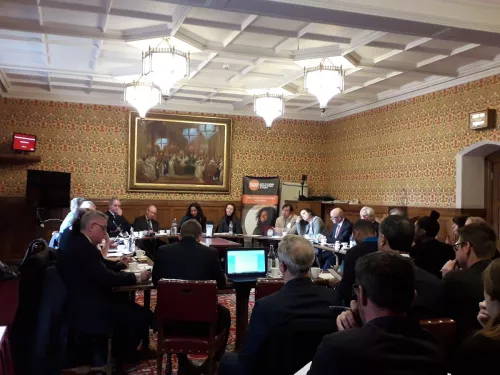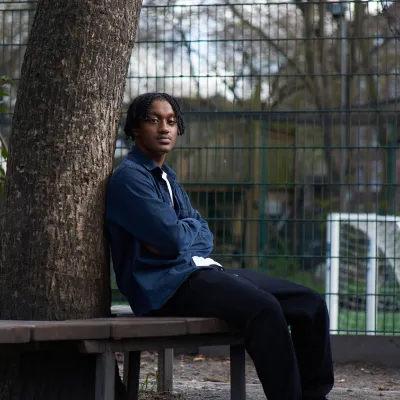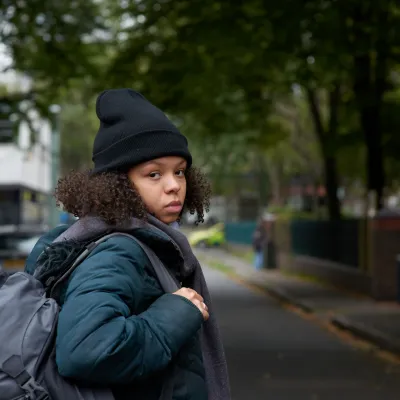This week Centrepoint hosted a parliamentary round table on the delivery of the Homelessness Reduction Act (HRA). Together with MPs and local councillors we looked at the demand for homelessness services across the country and the lack of affordable housing available. While the HRA is an important piece of legislation, changing the law alone will not eliminate homelessness.
One year on from the HRA coming into force, there are calls for:
- increased, long-term funding to enable councils to fulfil their new homelessness duties;
- a cross-party commitment on a long-term plan to build more genuinely affordable housing;
- a cross-government approach to reducing homelessness, including greater recognition of the impact of welfare reform policies;
- culture change on the frontline to offer homelessness support to everyone, not just those in priority need;
- an expanded network of Somewhere Safe to Stay hubs to provide shelter for those at immediate risk of homelessness.
Not in “priority need”
At our round table event, a Centrepoint resident shared his first-hand experience of seeking homelessness support last summer. Despite the new legislation, when he approached the local housing authority he was told he was not in ‘priority need’. This meant he would be denied social rented housing as he was not believed to be homeless. Unfortunately his story is not uncommon.

Roundtable event where a Centrepoint resident shared their first hand experiences
Centrepoint’s Helpline team hear regularly from young people that have been asked to prove they’re homeless. While there’s no denying resources are scarce, putting up barriers for young people in crisis is not the answer.
Before the introduction of the HRA, local housing authorities only had a duty to provide help to people in “priority need”. Many young people who approached the council for assistance were often turned away.
Following the introduction of the Act last year, local housing authorities must now take reasonable steps to help any eligible person secure accommodation – regardless of whether they’re in priority need or not. However, as we've heard from young people at Centrepoint, this is not always the case in practice.
It’s often difficult for a young person to navigate the assessment process and to prove their vulnerability. To ensure housing needs assessments are better adapted for young people, Centrepoint Manchester delivers them in partnership with the city council. We offer joined-up support with a substance misuse councillor and a psychotherapist on site. We also have trained homelessness prevention officers based in Manchester College to minimise any disruption to a student’s education.
The duty to refer
The latest change as a result of the HRA came in October 2018 after the introduction of the new "duty to refer". This requires other public authorities to play their part in referring those threatened with homelessness to a local housing authority.
It includes prisons, youth offender teams, probation services, Jobcentre Plus, social services and hospitals. Centrepoint would like to see this duty to refer better communicated and the list of authorities extended to include police and educational institutions, so that it is quicker and easier for young people to access support.
A young person at risk of homelessness should no longer be sent away only to come back when their situation becomes more desperate. The HRA has extended the time local housing authorities must take to prevent a person becoming homeless from 28 days to 56 days.
If there’s reason to believe someone is homeless or at risk of homelessness, they must now carry out an assessment and agree a Personal Housing Plan. The difficulty is that the quality of such plans varies and they tend to come up against a brick wall in areas where there simply isn’t enough affordable housing available.
The struggle to find affordable housing
The housing benefit freeze has made finding an affordable property in the private rented sector virtually impossible. “No DSS” policies are also being used to discriminate against benefit claimants by preventing them from renting.
Young people face particular difficulty as they receive a lower rate of housing benefit and a lower Universal Credit allowance.
Centrepoint are calling on the government to align housing benefit rates more closely with the cost of renting a property and to allow young people that have experienced homelessness to access the higher rate – helping them to move on from homelessness for good.

 Coventry and Co-op donation
Coventry and Co-op donation




